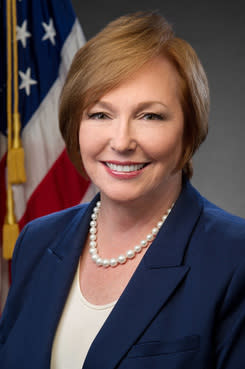CDC Head’s Resignation: Lessons From Lawyers for Appointees
[caption id="attachment_9141" align="alignleft" width="245"]


Dr. Brenda Fitzgerald (Courtesy photo)[/caption] Even before Dr. Brenda Fitzgerald purchased shares of a tobacco company a month into her tenure as head of the U.S. Centers for Disease Control and Prevention, the nation's top public health agency, potential conflicts of interest were already raising congressional ire. According to Politico, difficulties in selling two of Fitzgerald’s financial holdings precluded her from testifying before legislators multiple times about cancer detection and electronic health records that track the use of opioids, amid the opioid crisis in the United States. The issue came to a head Wednesday, though, when the CDC director resigned in the wake of Politico’s report that she bought shares in Japan Tobacco Inc. after she assumed office on July 7. In addition to the tobacco stock purchase, Fitzgerald invested in at least a dozen other companies, including pharmaceutical company Merck & Co. and Humana, a health insurer, between her starting date and September, the publication reported. Reducing or eliminating tobacco use, the "leading cause of preventable disease, disability and death in the United States,” according to the agency, is a key mission of the CDC. Citing a U.S. Department of Health and Human Services spokesperson, the news outlet reported that the stock purchases were handled by her financial manager and that she subsequently sold off the ones she made after she assumed office.The National Law Journal was unable to reach Fitzgerald for comment for this article, although she told the Wall Street Journal on Wednesday that she resigned because she didn't want to become a distraction to the agency. Dr. Tom Frieden, Fitzgerald's predecessor at the Atlanta-based CDC, who resigned as director of the agency in January 2017, said in a Tweet Wednesday morning that "I have spoken with Dr. Fitzgerald & believe her when she says she was unaware a tobacco company investment had been made, she understands that any affiliation between the tobacco industry & public health is unacceptable, & that when she learned of it she directed that it be sold.” Legal experts told the National Law Journal that the situation could have been completely avoided, however. Whether or not Fitzgerald broke federal law governing conflicts of interest among government employees, she certainly committed a “public relations crime,” said Kathleen Clark, professor at Washington University Law School who specializes in legal and government ethics. Fitzgerald previously was a top public health official in Georgia. “This undermines her credibility as a public health official, and that’s a critical component of her being able to do her job,” Clark said. “We have an opioid crisis, and we need the chief public health officer to be in a position where she can do her job, and [Fitzgerald] wasn’t.” Clark said having senior government officials identify and address financial conflicts of interest before a political nominee or appointee takes office and even before his or her name is even floated publicly can prevent similar debacles. Before that process, “someone should be vetting their finances to identify potential problems and ensure that they can be addressed,” Clark said. “There is a public interest in allowing that to happen without the disruption of a public announcement of someone who can’t actually do the job and finally gets canned.” While that may be too late for Fitzgerald, her situation offers some lessons for others in a similar position. For starters, once a plan for divesting of potentially conflicting stocks or recusing oneself from personal and substantial participation in a matter in which there is a financial interest is developed, everyone—including financial advisers, brokers, planners and other professionals—must understand the rules and procedures, said Leslie Kiernan, a litigation partner at Akin Gump Strauss Hauer & Feld and former deputy White House counsel under the Obama administration. The extent and nature of these rules, Kiernan said, will depend on the facts and circumstances of the particular case. “You can think about giving the broker instructions such as, ‘You may not purchase a category of stocks without prior approval,’ or you may take the extraordinary step of saying, ‘You may not purchase anything without prior approval.’” In addition, Kiernan added, it is important to handle these issues promptly and prevent them from dragging on. “You have to make a judgment about how long certain things will take and whether the [recusal or divestment] is manageable within that time frame,” she said. “If you make the judgment that it’s not going to be manageable, then sometimes officials end up forfeiting their financial interests. It’s very important to focus on what the duties of the office are, ” she said.

